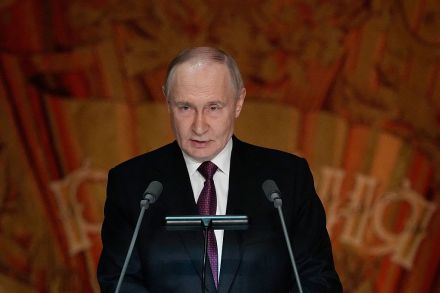Starmer won’t stop Putin exploiting Europe’s migrant crisis
Another week, another migration scandal. On Monday, the Times reported that Russian spies have been working with international human rights groups to ‘flood Europe with illegal migrants’. The revelations come from Daniel Mitov, Bulgaria’s interior minister, who claims to have evidence that the Russians are assisting people smugglers in finding weak spots along the Bulgaria-Turkey border and instructing migrants on how to avoid detection. Mitov – as I’m sure you’ll understand – isn’t thrilled by this. Rather than regarding waves of new arrivals pouring through his country’s borders as just the injection of diversity that Bulgaria needs, the interior minister sees it as a naked attempt by Vladimir Putin to





















